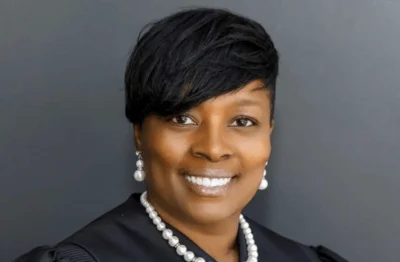Technology & Manufacturing Association President Steve Rauschenberger. | Facebook
Technology & Manufacturing Association President Steve Rauschenberger. | Facebook
Illinois voters can learn an important lesson from Colorado to avoid a sky-high tax increase in November, according to a July 30 video discussion between Americans for Prosperity (AFP) Action-Illinois Senior Adviser Andrew Nelms, AFP Action-Colorado State Director Jesse Mallory and Technology & Manufacturing Association President Steve Rauschenberger.
They compared a 2019 ballot measure in a Colorado that would have allowed the state to retain tax revenues above the state spending cap, a change from current law, which refunds it to taxpayers as part of the Taxpayer’s Bill of Rights. Voters in the Rocky Mountain State rejected Proposition CC soundly, 838,282-724,060 – or 53.66% against, 46.24% for the measure.
Mallory said the Illinois “Fair Tax” proposal that is on the November ballot can also be defeated, and offered ideas on how opponents can make that happen. Voters will decide on a proposed graduated income tax that would replace the current flat-tax system – if voters approve the constitutional amendment – on Nov. 3.

Americans for Prosperity Action-Illinois Senior Adviser Andrew Nelms
| Facebook
Illinois' proposed amendment was approved during the 2019 session, passing in the Senate 36-22 and in the House 73–44. Illinois' Democratic Gov. J.B. Pritzker signed Senate Bill 687 into law on June 5, 2019.
To become law, it needs the support of 60% of the votes on the ballot measure itself, or a simple majority of all of the votes cast in the election. Nelms, who also heads the group No Unfair Tax, said the ballot question is far different than the plan Pritzker unveiled last year.
He said in the discussion that a prohibition against local income taxes included in the original version has been dropped. The actual language of the amendment won’t even be on the ballot, he said. Instead, an explanation written by the people who drafted it will be placed before voters.
While Pritzker said that 97% of Illinoisans would pay the same or lower taxes if the amendment were approved, and only those who make more than $250,000 would see a tax increase, Rauschenberger said that is simply not true. He told the group that the state will be able to raise taxes on segments of the population and companies with varied rates.
Mallory said the tax can be beaten. Conservatives who oppose it because they are worried about potential tax hikes by state officials can find unlikely allies, he said.
“Most people have an inherent distrust of government to continue to increase [taxes] and take [revenue],” Mallory said. “We were not shy about who we talked to [in Colorado].”
He said that opponents of the tax structure campaigned in bright blue areas and found liberals who agreed with them. Higher taxes and a disdain for government officials crosses party lines, Mallory said.
Rauschenberger told the panel that opponents need to make it clear that this change would not solve the state’s many financial problems, including massive unfunded public pension plans, poor credit ratings, high property taxes and a flood of outbound migration. Instead, it puts more money and power into the hands of Illinois House Speaker Mike Madigan (D-Chicago), who has recently been linked to a bribery scandal, as well as other lawmakers with less-than-sterling track records in a state known for its hhistory of political corruption.
“This doesn’t solve Illinois’ financial problems,” Rauschenberger said. “It only makes them worse.”
Rauschenberger also said that people need to understand the authority this constitutional change would give to elected officials, many who are under investigation or have a track record of corruption and shady deals. This problem exists in Springfield, Chicago and Cook County, and recent revelations have only added to the mountain of evidence of insider deals and ethical and legal failures.
“We have swirling corruption in Illinois,” Rauschenberger said. “For manufacturers and small businesses, this really could be the death knell.”
If the tax plan is approved, Rauschenberger said that state leaders could pick and choose whom they raise taxes on every year. It’s similar to how they select their voters by drawing district boundaries that favor their candidates, he said.
Manufacturers should be very concerned, Rauschenberger said, and that should worry middle-class residents as well. Manufacturing is the second-largest economic engine in Illinois, and the largest employer of middle-class workers.
Manufacturing workers are paid 40% more than retail workers and 25% more than employees in financial services. But those jobs would be put at risk by a major change in tax policy.
“This is a sector we ought to be paying attention to, not ignoring,” Rauschenberger said.
Rauschenberger, who served 15 years in the Illinois Legislature, said the answer is boosting the state economy, not putting more dollars in the hands of politicians. Government spending does not ensure good jobs, plentiful opportunities and safe neighborhoods, he added.
Instead, parts of Chicago are dangerous, crime-ridden areas, no matter how much tax money is poured into them. If government spending works, Illinois would be in great shape, Rauschenberger said, “because we’re top spenders.”
Mallory said the financial woes in Illinois did answer one question for him.
“I’m starting to understand why so many people from Illinois are moving to Colorado,” he said. “They are so thankful we have a Taxpayers Bill of Rights here. It’s all making sense now.”





 Alerts Sign-up
Alerts Sign-up